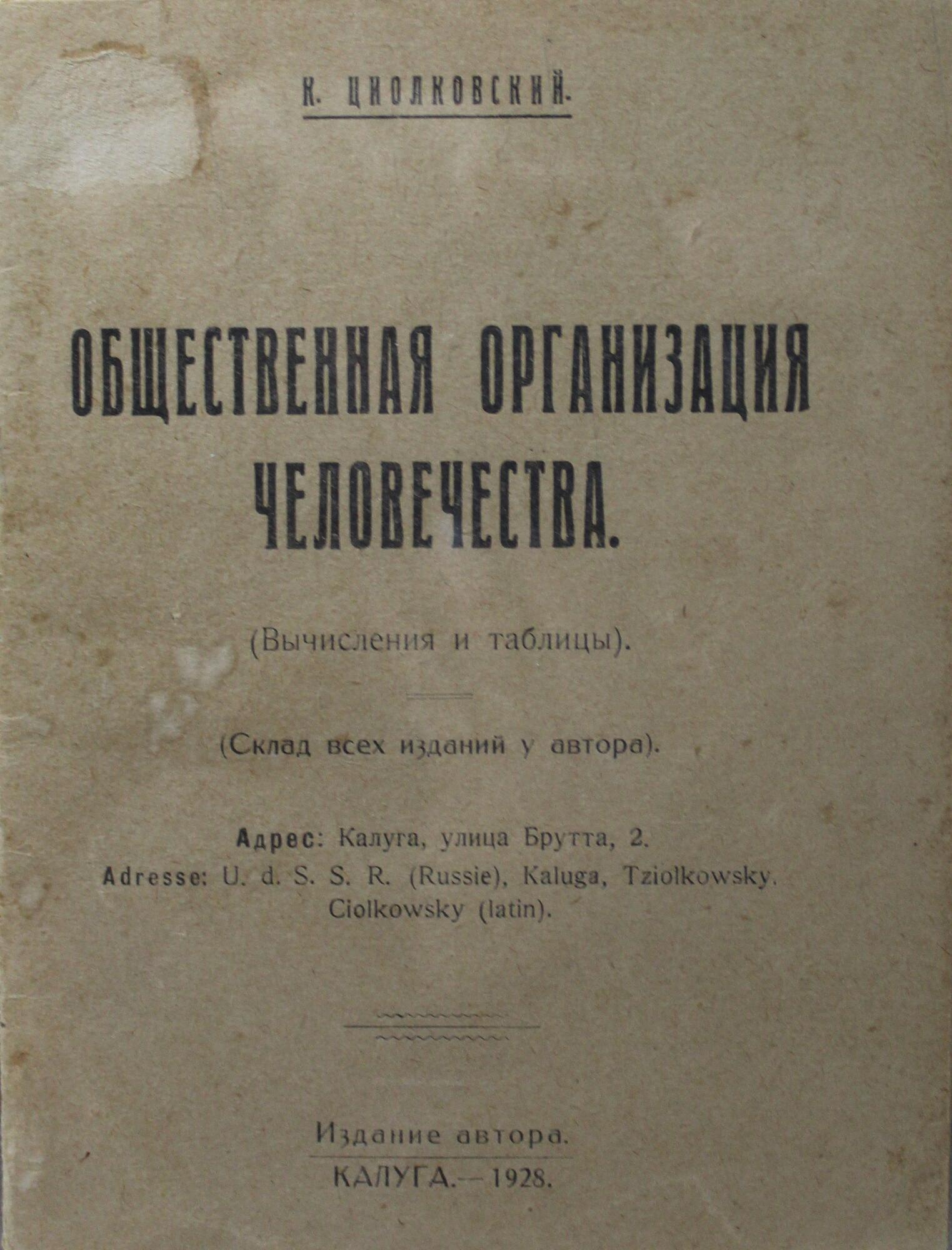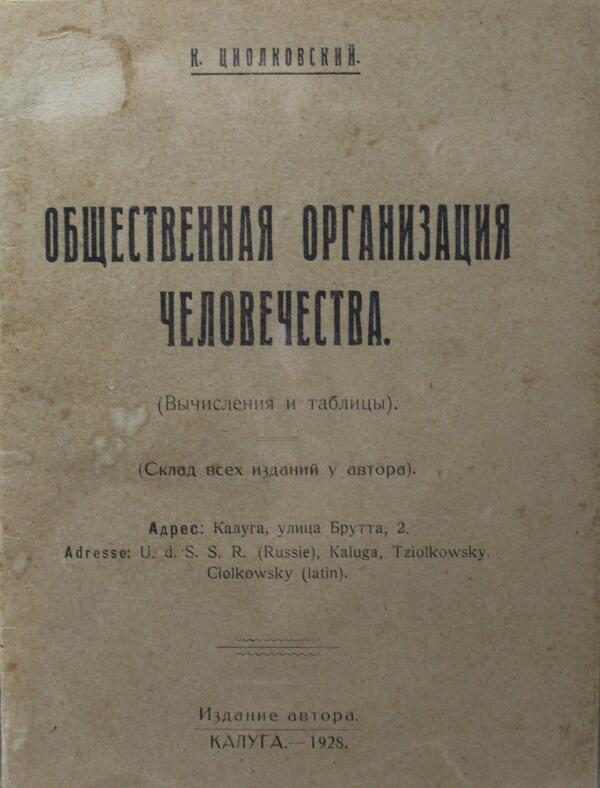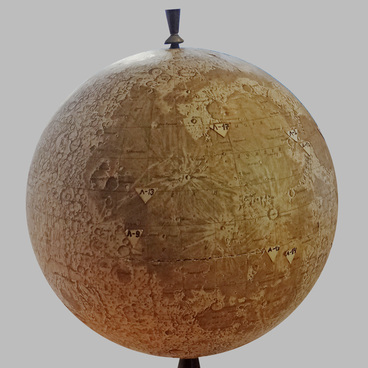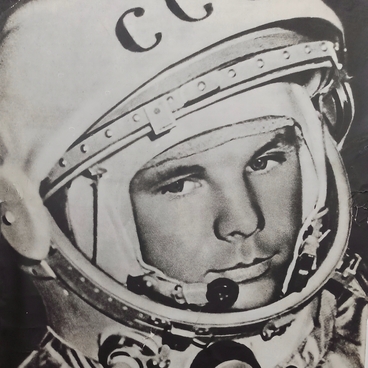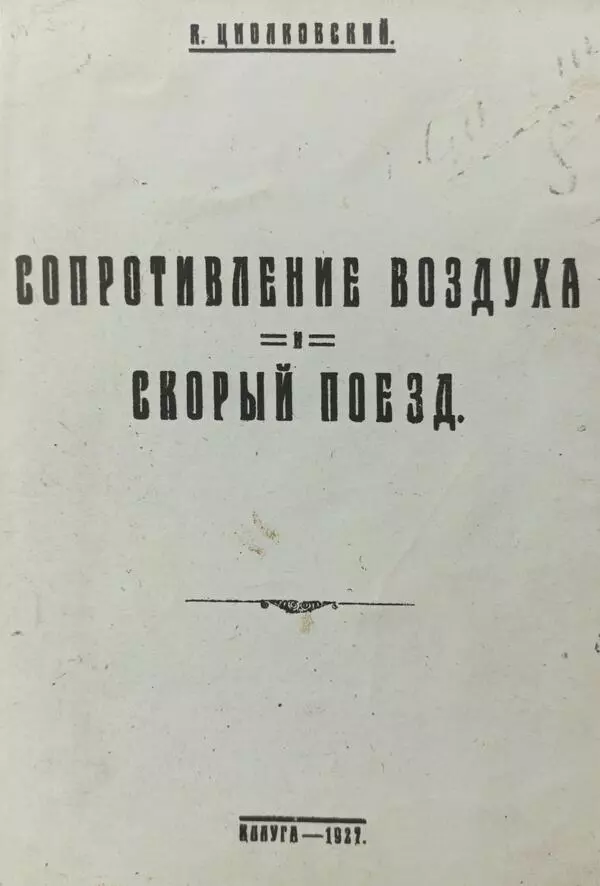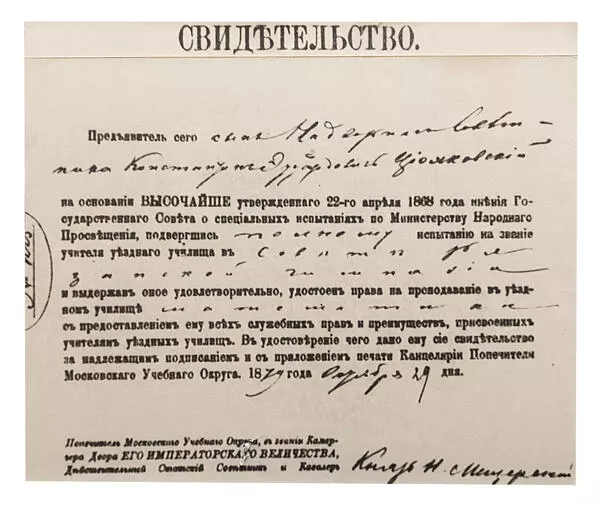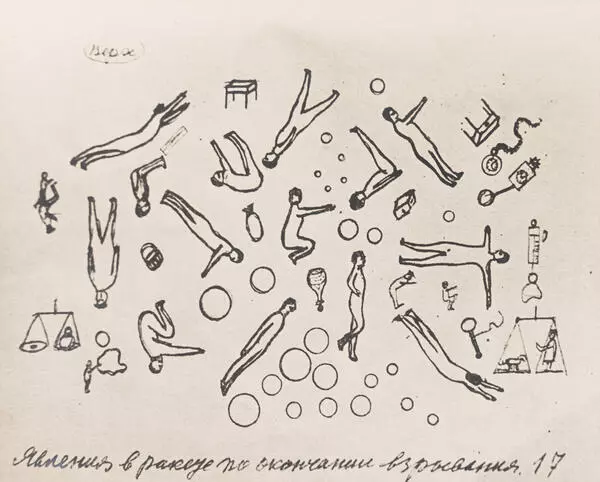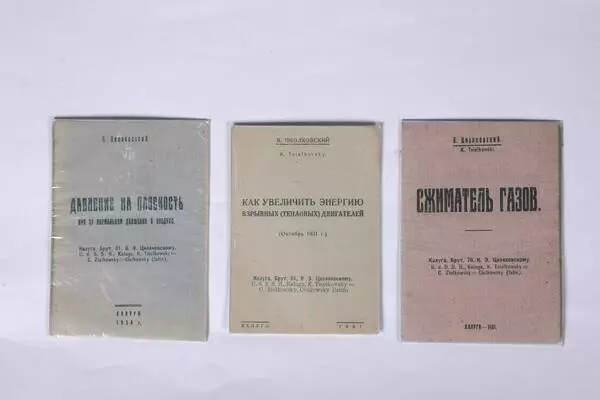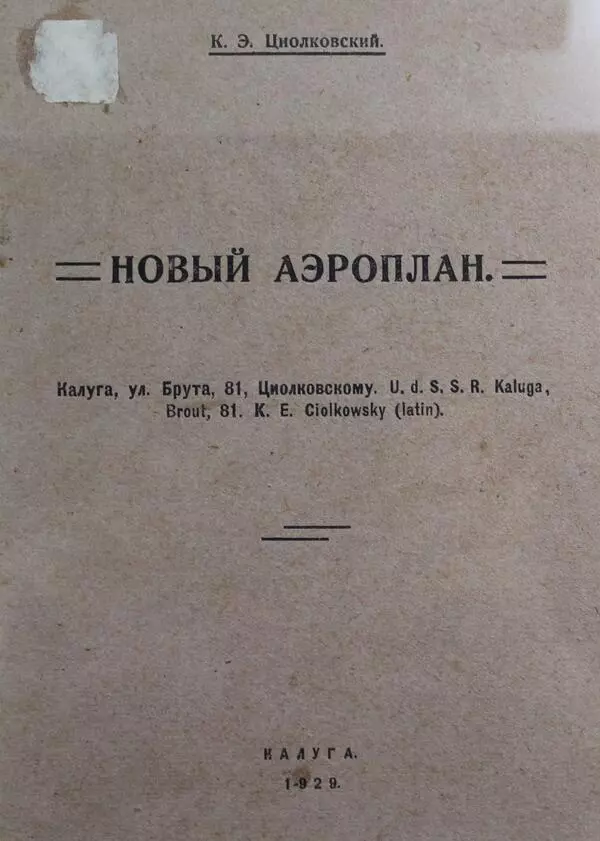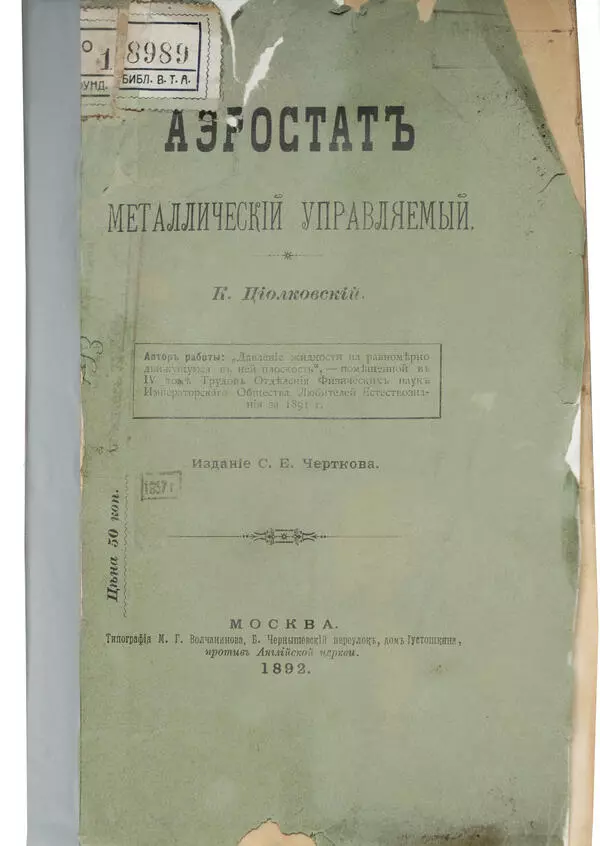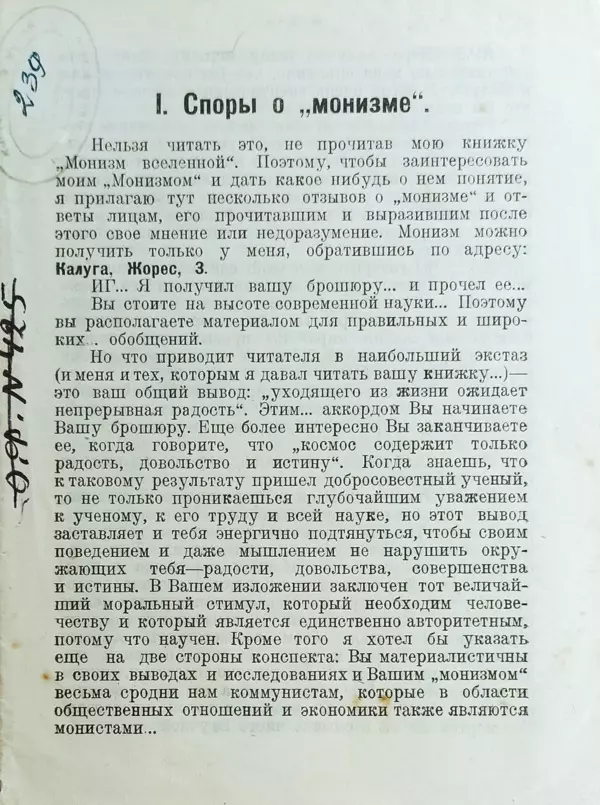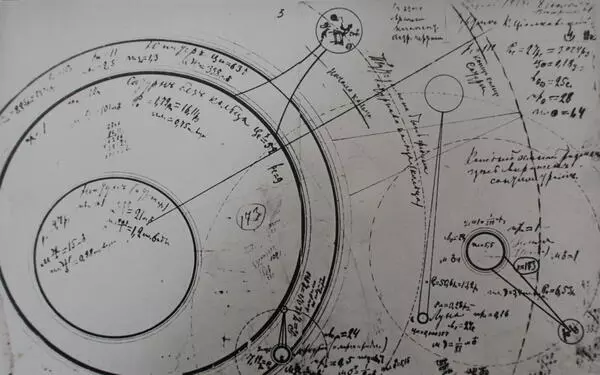In his works, Konstantin Tsiolkovsky paid a lot of attention to issues of social order. The scientist believed that our world could be explained from a cosmic perspective and saw the future of mankind in space exploration. He predicted that in the future humanity would have to survive the depletion of Earth’s resources and the cooling of the sun. Therefore, the main priority was the continuous development and improvement of the individual and society.
In “Social organization of mankind” Tsiolkovsky developed his idea of gradual evolution of society on the basis of the principle of monism. The scientist believed in a single source of origin, existence and development of the universe, nature, man and society. He considered this source to a divine entity called the Cause of Space, which observes life on the planet but does not manifest itself at first. But one day, when humanity reaches a higher stage of development, it will be able to communicate with the Cause, to get advice from it. And gradually, it will become the top center of human and social leadership.
Tsiolkovsky considered the development of society as a gradual evolution, improvement from the lower order to the higher, more moral one. According to him, as people evolve, they must develop common values, a common way of thinking and action, a common language and even a single type of government for the entire world population. Tsiolkovsky believed that an ideal society should be clearly structured and uniform, and the responsibility of each of its members should extend to the scale of the universe. According to Tsiolkovsky, no area of human life is left without the attention of society, and from life every layer of society should be rewarded according to its properties.
The scholar believed that the basic values of civilizations on a cosmic scale of development were the pursuit of happiness, bliss and practical immortality, as well as the achievement of a balance between the emotional and intellectual spheres of personal development. And the main task of the society Tsiolkovsky saw not only the exploitation of material resources of the universe, but also the destruction of depraved qualities of human nature: aggression and ignorance. The scientist believed that there was no limit to the perfection of society.
In “Social organization of mankind” Tsiolkovsky developed his idea of gradual evolution of society on the basis of the principle of monism. The scientist believed in a single source of origin, existence and development of the universe, nature, man and society. He considered this source to a divine entity called the Cause of Space, which observes life on the planet but does not manifest itself at first. But one day, when humanity reaches a higher stage of development, it will be able to communicate with the Cause, to get advice from it. And gradually, it will become the top center of human and social leadership.
Tsiolkovsky considered the development of society as a gradual evolution, improvement from the lower order to the higher, more moral one. According to him, as people evolve, they must develop common values, a common way of thinking and action, a common language and even a single type of government for the entire world population. Tsiolkovsky believed that an ideal society should be clearly structured and uniform, and the responsibility of each of its members should extend to the scale of the universe. According to Tsiolkovsky, no area of human life is left without the attention of society, and from life every layer of society should be rewarded according to its properties.
The scholar believed that the basic values of civilizations on a cosmic scale of development were the pursuit of happiness, bliss and practical immortality, as well as the achievement of a balance between the emotional and intellectual spheres of personal development. And the main task of the society Tsiolkovsky saw not only the exploitation of material resources of the universe, but also the destruction of depraved qualities of human nature: aggression and ignorance. The scientist believed that there was no limit to the perfection of society.
